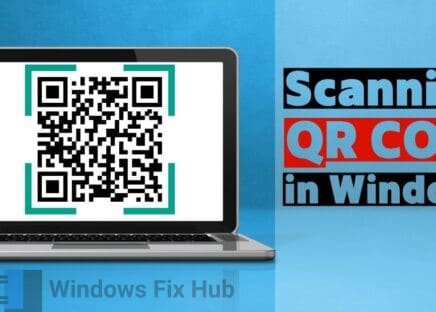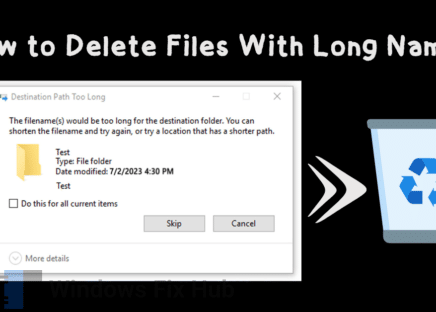Fix your Windows issues automatically with FREE Advanced SystemCare app & enhance your online security.
Bluetooth technology is essential to our daily computing experience, enabling the wireless connection of devices such as keyboards, mouses, headphones and so on.
However, weak Bluetooth signals or limited range can quickly become utterly problematic. These issues are common on Windows devices and may arise from several factors, including outdated drivers, interference from other electronic devices, or power management settings that reduce the performance of your Bluetooth adapter.
Useful: if you’re Bluetooth icon is missing.
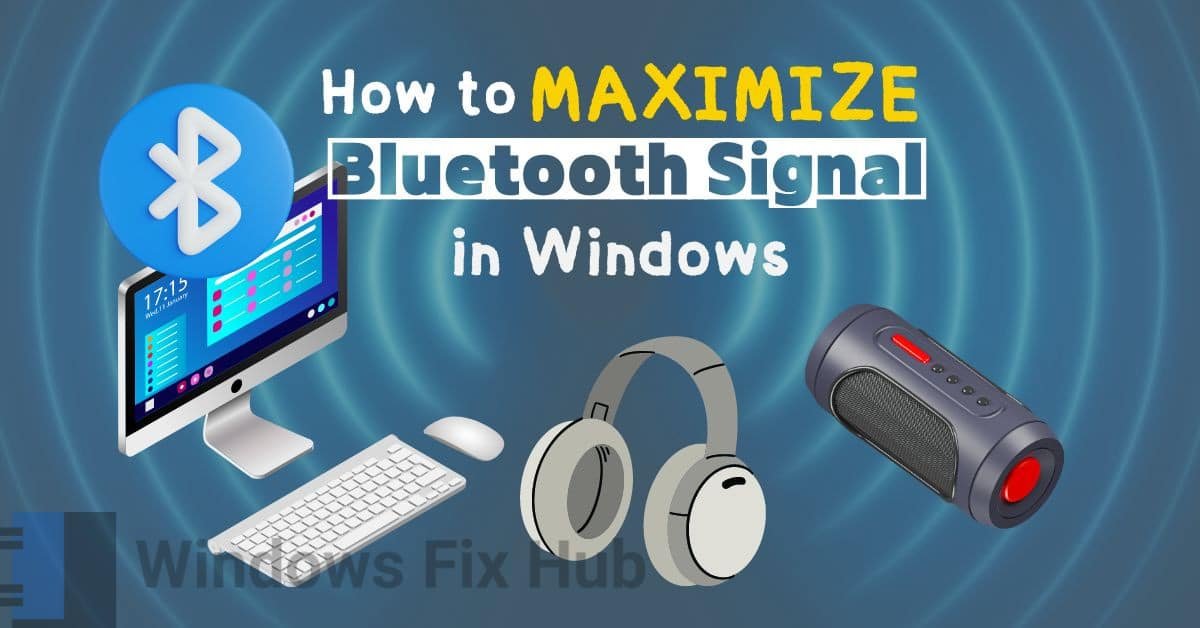
TL;DR: Rapidly Maximize Your Bluetooth Signal Strength and Coverage on Windows
Here are some quick ways you can apply right away if you’re in a hurry.
- Use a Bluetooth signal enhancer to increase the Bluetooth signal’s strength and range while strengthening connections.
- Make sure that your devices are placed in the best possible way like removing external obstructions and interference, etc.
- Keep your adapter updated with new upgrades, increasing Bluetooth signal strength and functionality.
Easy Methods to Maximize Your Bluetooth
Signal Strength and Coverage
Sometimes, the easiest fixes may give the biggest results when it comes to boosting your Windows Bluetooth signal. Let’s see what can be done:
Method 1. Use a Physical Bluetooth Signal Enhancer
A Bluetooth signal booster (Amazon link) strengthens and stabilizes the signal, allowing devices to connect over longer distances with improved reliability.
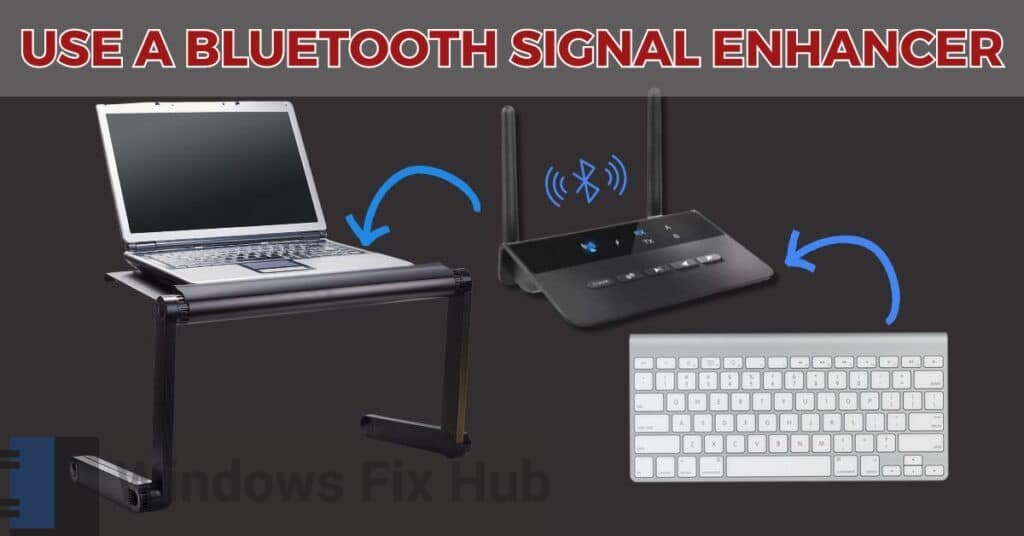
Investing in a trustworthy Bluetooth signal booster that works with your Windows device is the first step towards improving your Bluetooth signal. After obtaining the booster, place it between your computer and the Bluetooth device and plug it into a power source. Place it where it will best maximize signal strength, preferably close to the middle point of the two devices. At the end, monitor your Bluetooth performance to see the improvements in connectivity and range.
Method 2. Place Devices in the Best Possible Way
It may surprise you to learn how important it is to arrange your Bluetooth devices. Walls, furniture, and even your own body can act as signal barriers.
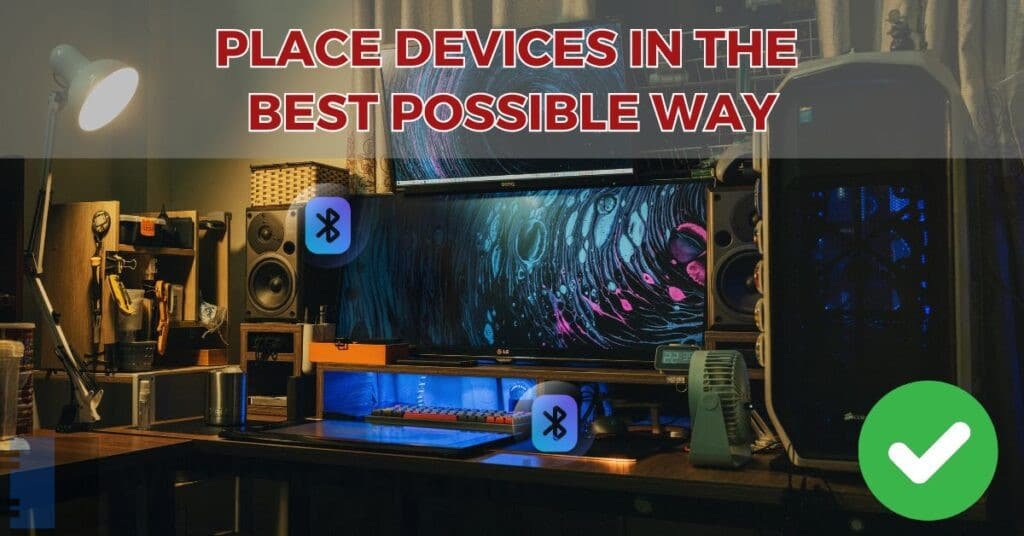
- Place Bluetooth-enabled devices in locations with unobstructed access.
- Large metal objects and electrical devices, such as microwaves and Wi-Fi routers, can cause interference, so keep your devices away from these areas.
- To minimize signal interference, try to keep your Bluetooth devices at the same height, such as both on a desk.
- Test the connection to see if the signal improves.
Method 3. Upgrade the Bluetooth Drivers
You may improve signal strength and ensure that your adapter has the most recent performance and compatibility upgrades by making sure the Bluetooth drivers are up to date.
- To access “Device Manager”, press the ‘Windows key + X’ and choose it from the menu.
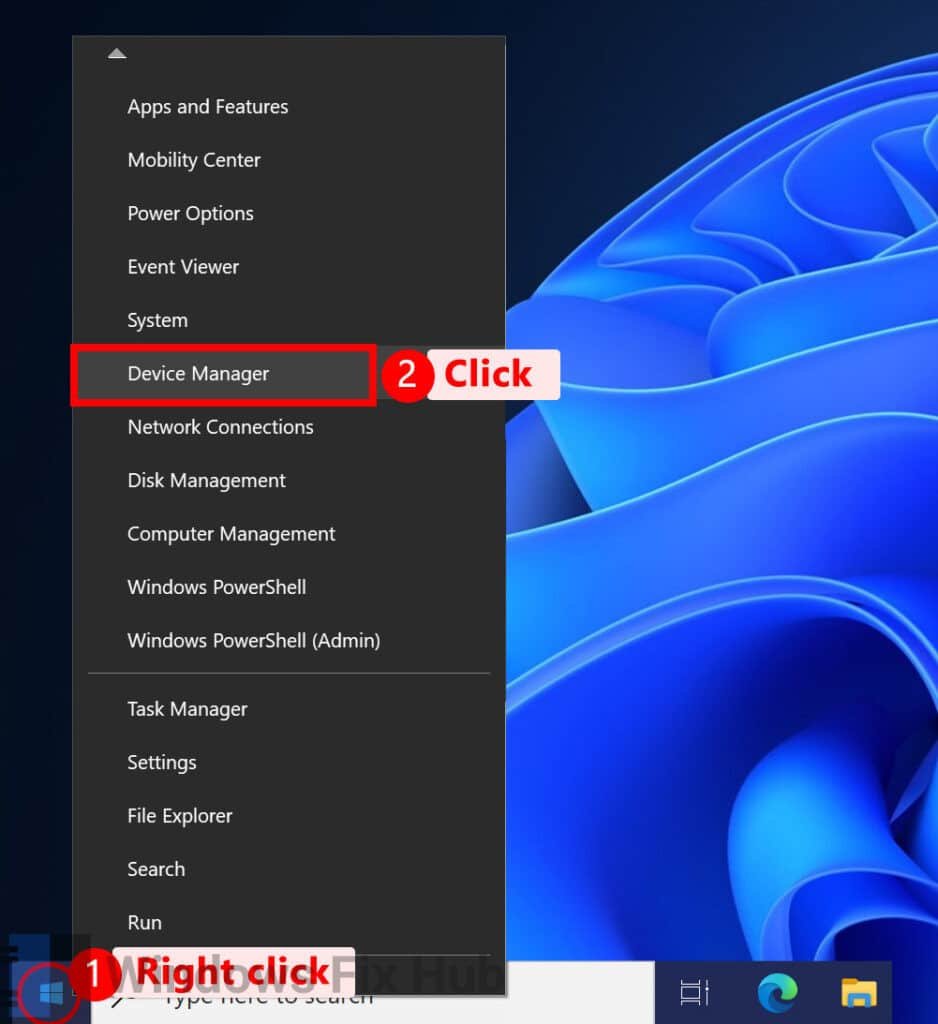
- Expand the “Bluetooth” area in the “Device Manager”.
- To update the driver, right-click on your Bluetooth adapter and choose “Update driver”.
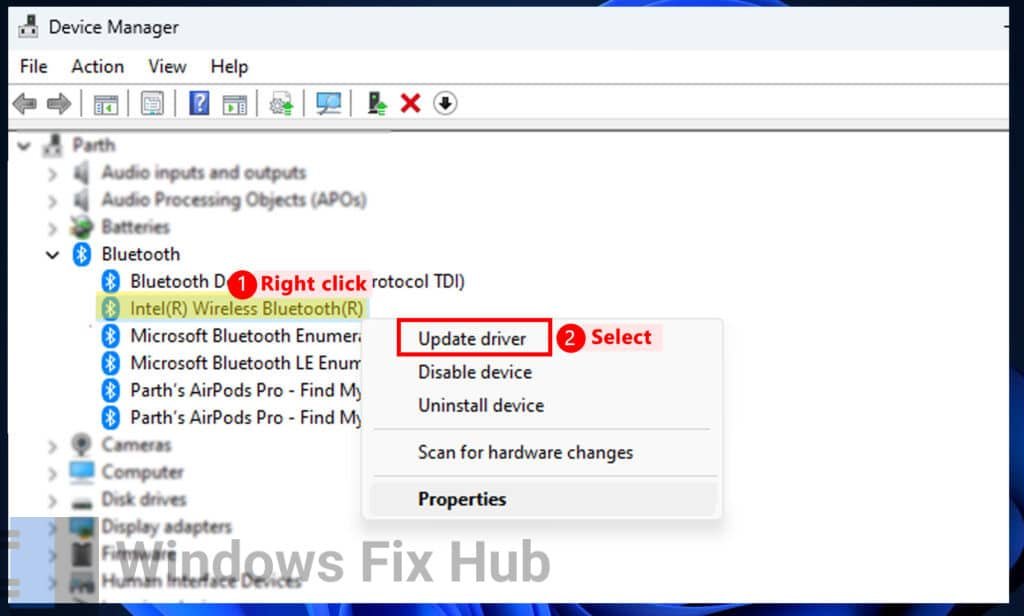
- Select “Search automatically for drivers” to allow Windows to find and install the latest version.
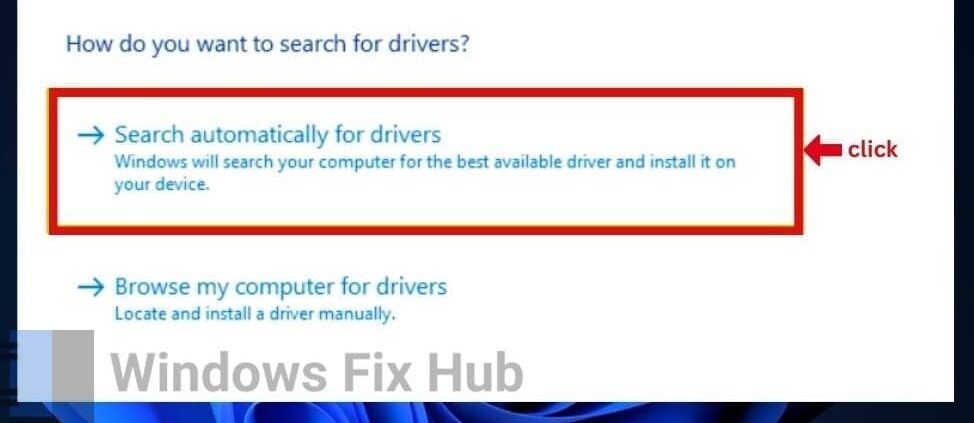
- To ensure the modifications take effect, restart your computer and see if the Bluetooth signal has improved.
Advanced Methods to Maximize Bluetooth
Signal Strength and Coverage on Windows OS
Don’t worry if the simple methods aren’t able to completely resolve your Bluetooth problems; there are advanced methods to maximize the strength and range of your Bluetooth signal.
Method 4. Modify the Power Settings of the Bluetooth Adapter
Your Bluetooth adapter’s power settings can be changed to stop Windows from limiting its performance, giving you a stronger and more reliable signal.
- To access “Device Manager”, press the ‘Windows key + X’ and choose it from the menu.

- After expanding the Bluetooth area, select “Properties” from the context menu by right-clicking on your Bluetooth adapter.
- Go to the tab for “Power Management”.
- Uncheck the box labeled “Allow the computer to turn off this device to save power”.
- Click “OK” to apply the changes.
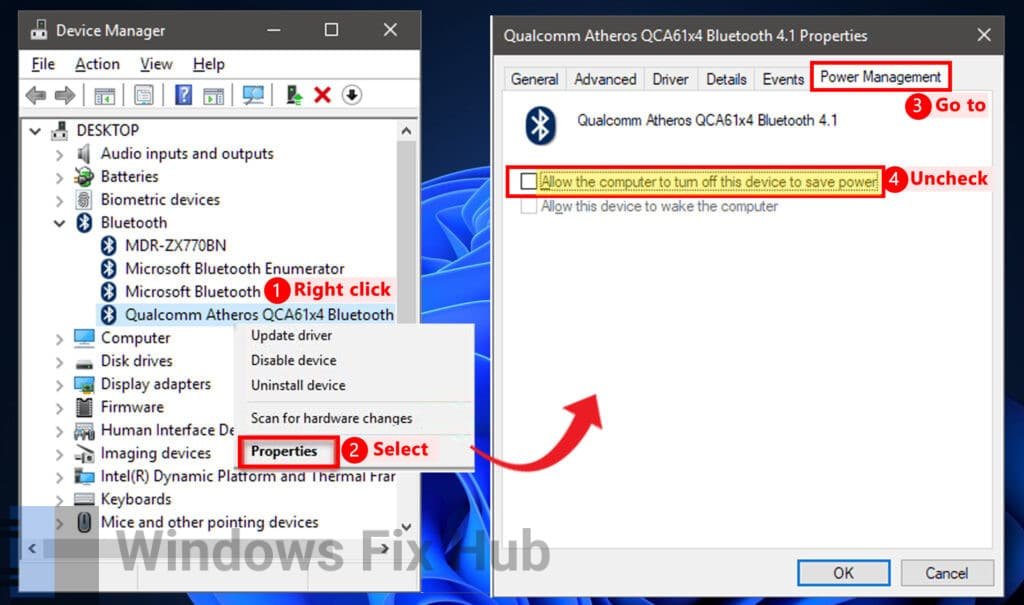
- Check to see whether the Bluetooth signal has improved after restarting your computer.
Method 5. Utilize a Bluetooth External USB Adapter
The range and power of an external USB Bluetooth adapter are frequently greater than those of built-in adapters, enhancing Bluetooth performance overall.
- Invest in a high-quality USB Bluetooth adapter; for optimal results, choose one with “Bluetooth 5.0” or higher.
- Attach the adapter to a USB port on your computer that is available.
- The required drivers should be installed by Windows automatically. Install them from the manufacturer’s website if not.
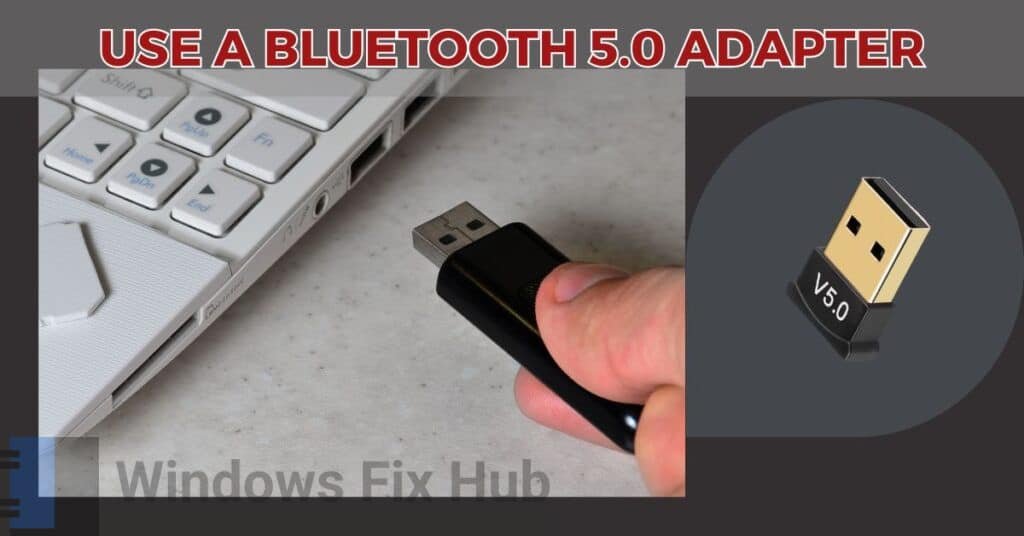
- After installation, use “Device Manager” to expand the Bluetooth area, right-click the internal adapter, and choose “Disable device” to turn it off.
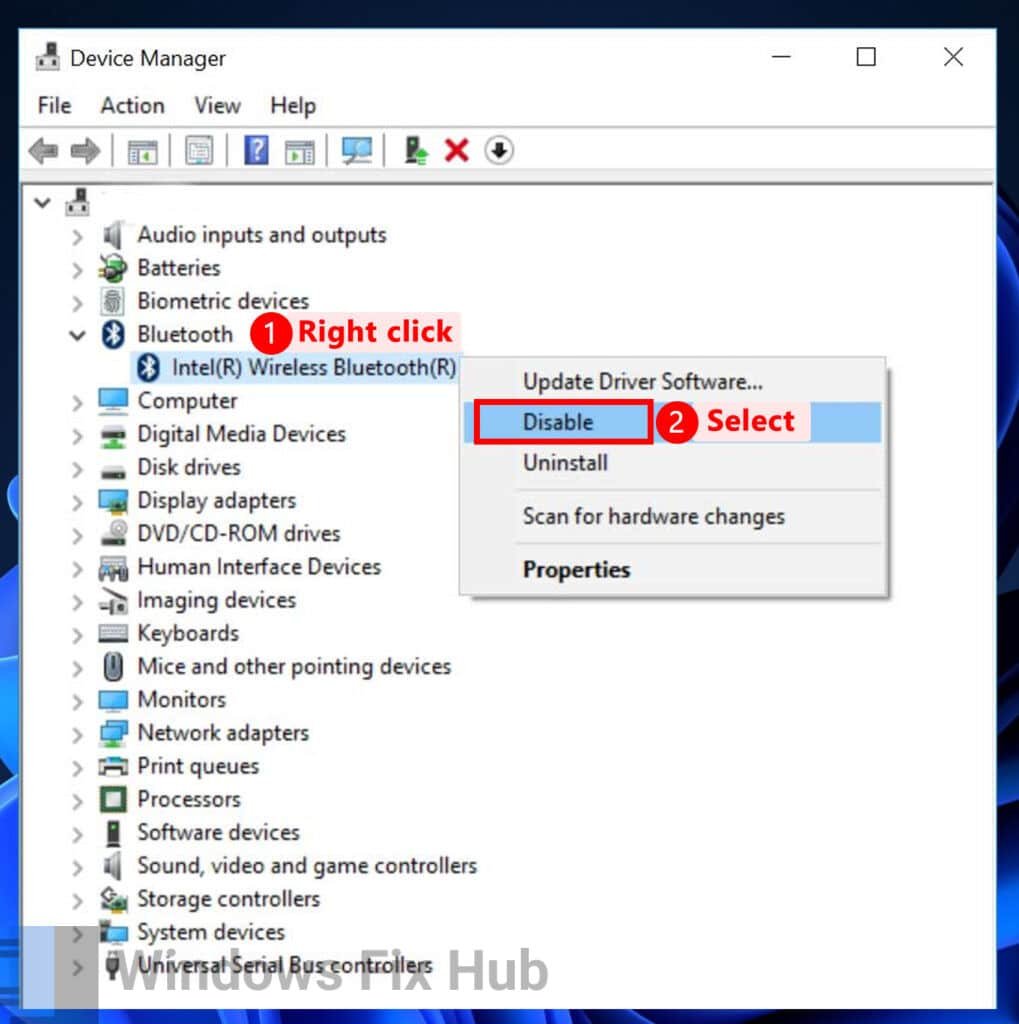
- For all Bluetooth connections, use the new USB adapter, and take note of the increased signal range.
Method 6. Upgrade Windows
Windows updates give you access to the newest bug fixes and system improvements that can boost Bluetooth compatibility and functionality.
- Use the ‘Windows key + I’ to open “Settings”.
- Click “Windows Update” after selecting “Update & Security”.
- Click “Check for updates”. Install any updates that are available by downloading them.
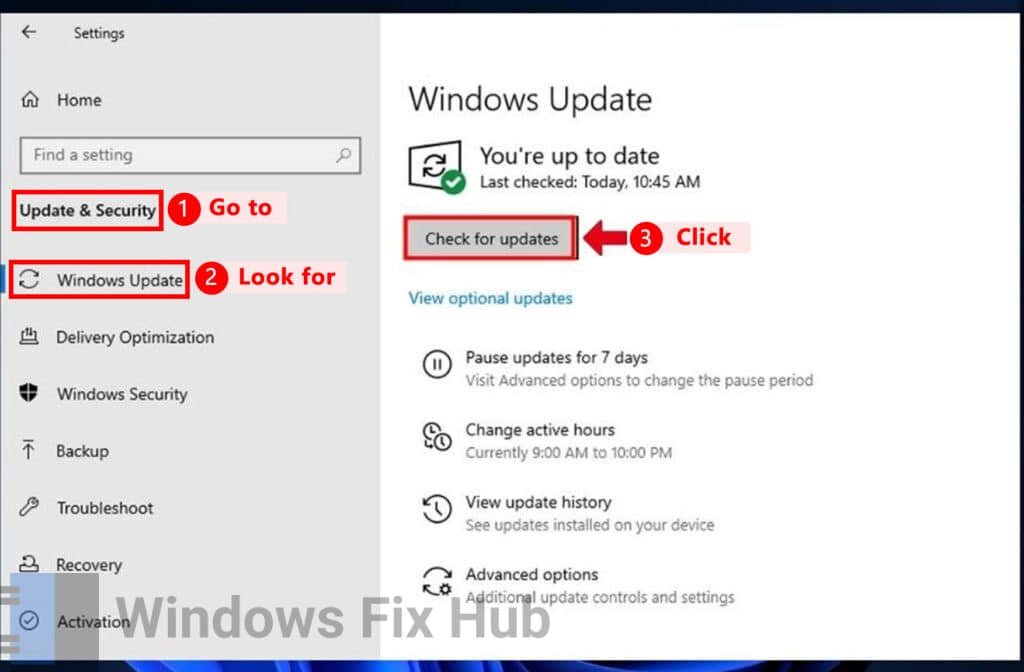
- Restart your computer after installation, then test the Bluetooth connectivity.
Method 7. Troubleshooting with Device Manager
In addition to being useful for driver upgrades, Device Manager can be used to solve Bluetooth issues.
- Open “Device Manager” by hitting the ‘Windows key + X’ and choosing it from the menu.

- Right-click on your Bluetooth adapter after expanding the Bluetooth section.
- Click “Properties” then select the “Details” or “Advanced” tabs to explore.
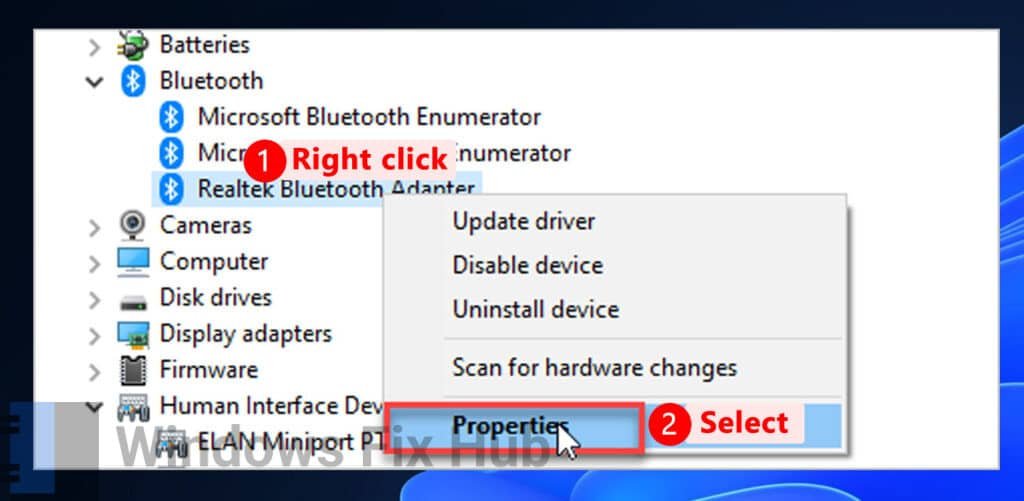
- If available, look for settings like “Sensitivity” or “Transmit Power” and make the necessary adjustments to see if your signal gets stronger.
- Seek out any conflicts or error messages as well, as these may indicate further issues with the adapter.
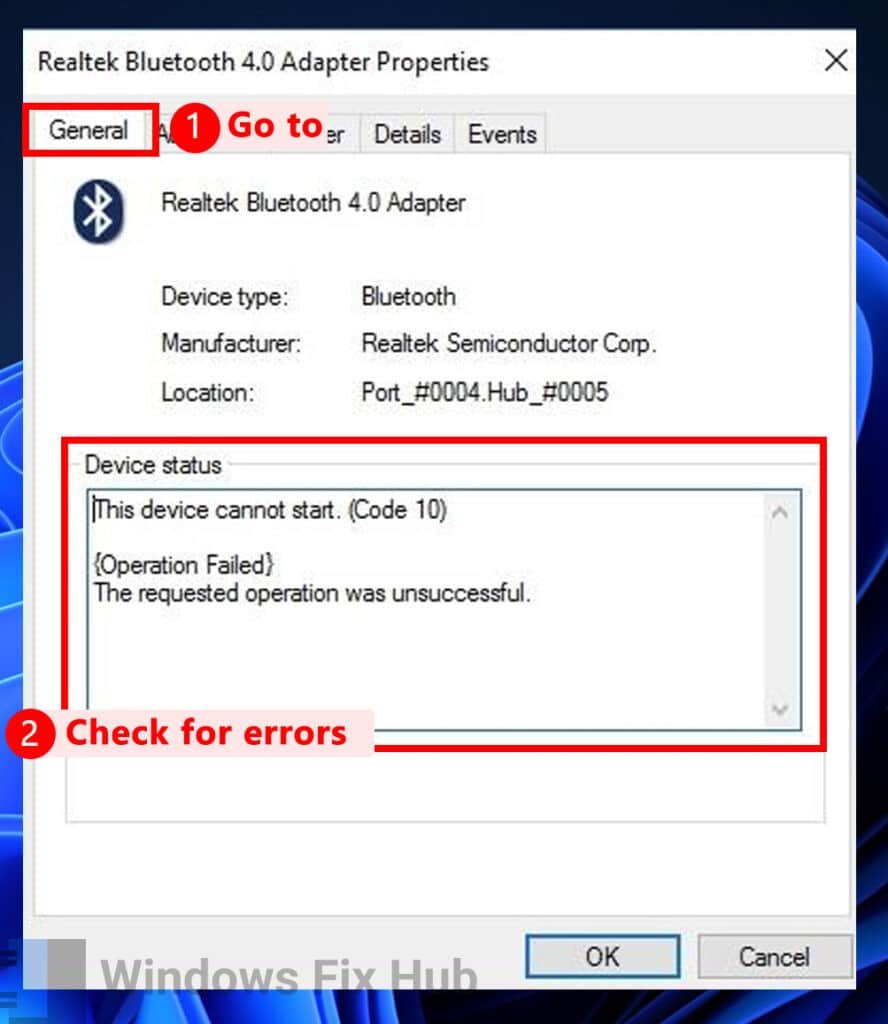
Method 8. Use a Third-Party App to Update Bluetooth Drivers & Solve Issues
Advanced options for controlling and improving Bluetooth connections are provided by third-party tools, which also help to increase signal stability and range.
With just a few clicks, these programs scan and update the outdated and corrupted drivers, simplifying the process. A dependable tool in this regard is iobit Advanced System Care app. The steps to use it are as follows:
- Get the iobit Advanced System Care app and install it.
- Once the software is launched, your computer will be scanned for outdated and incompatible drivers.
- A list of drivers will appear; select the ones you wish to upgrade, then click “Activate & Update” to get the most recent versions downloaded and installed. To save the changes, restart your computer after finishing.
iobit Advanced System Care is used by millions of users worldwide.
It’s a “must-have” for every PC or MAC user who wants:
- To fix common PC errors automatically
- To speed up their computer performance
- To fully secure their device

